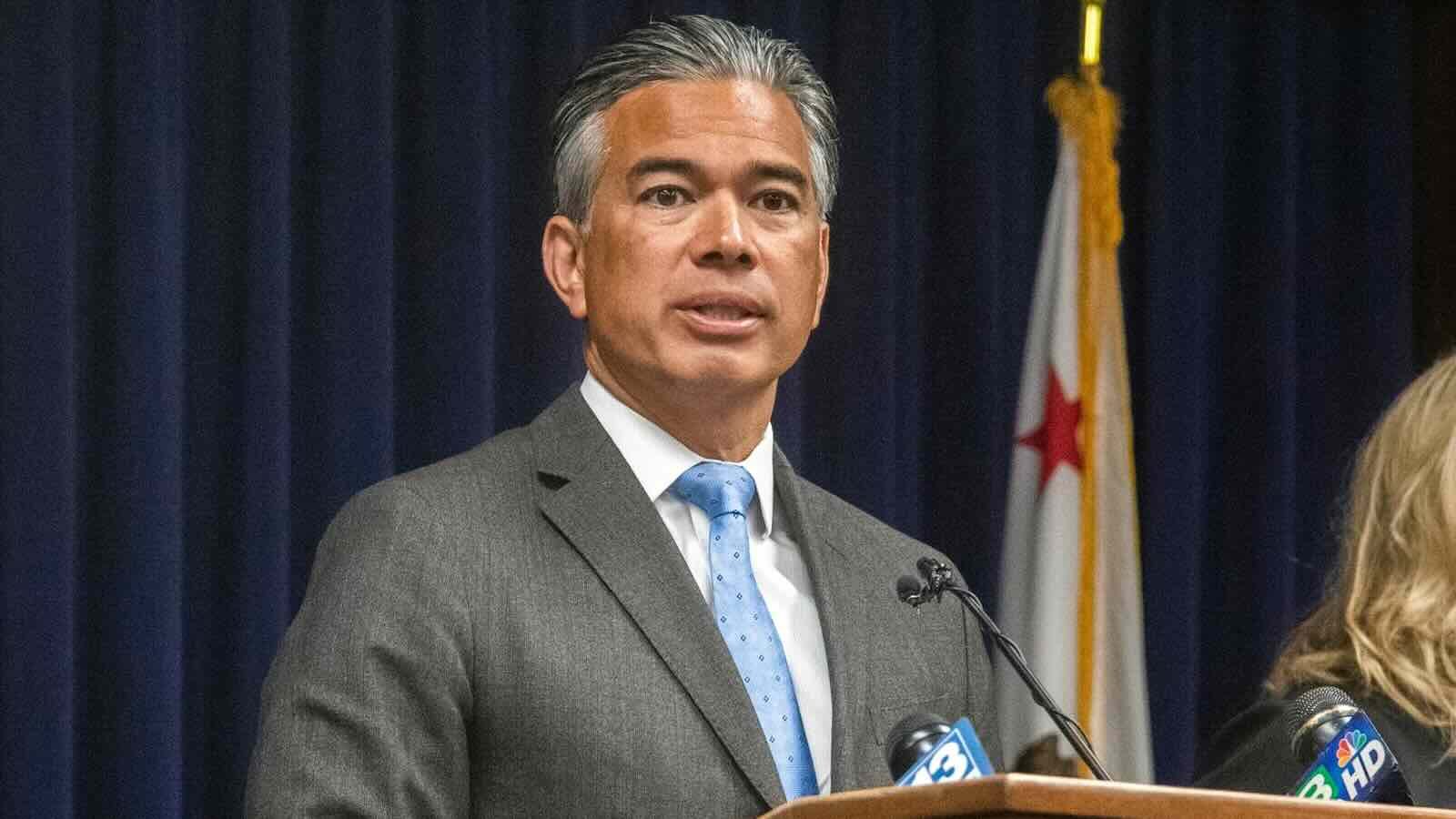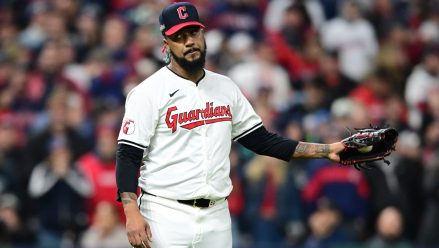California Attorney General Rob Bonta needed only one word Thursday to throw the daily fantasy sports (DFS) industry into more of a panic.
“Yes,” was Bonta’s answer to a question posed 18 months ago:
Does California law prohibit the operation of daily fantasy sports games with players physically located within California, regardless of whether the operators and associated technology are located outside the State?
But Gov. Gavin Newsom sent a lifeline to DFS companies in the form of his position, posted shortly thereafter on social media:
While neither opinion is binding or changes the current status quo, the dissonance between the attorney general’s office and the governor’s office muddy the pathway for lawmakers and highlight how politics have the potential to alter a situation. The ultimate arbiters of the legality of DFS — or any gambling — in California will be the legislature, voters, or courts — or some combination of the three.
Neither Bonta’s opinion nor Newsom’s response have immediate legal impact.
Drama has been building
Requested by state Rep. Tom Lackey (originally by former Sen. Scott Wilk), the opinion could set the stage for California lawmakers to explicitly prohibit daily fantasy sports platforms like DraftKings, FanDuel, PrizePicks, and Underdog Sports from operating in the state. Some companies have long been offering daily fantasy sports contests in California because there is no law banning them. There is also no law specifically allowing them.
The Fantasy Sports Gaming Association (FSGA) wrote in a statement that the opinion “isn’t grounded in common sense,” and that the organization “maintains that paid fantasy sports contests are legal games of skill under California law, and this view is supported by 26 states that have confirmed fantasy sports are legal games of skill and not gambling. In these instances — whether by legislation, AG opinions (West Virginia, Rhode Island), or state supreme court decisions (New York, Illinois) — the legality is clear.”
PrizePicks and Underdog, two of the leading fantasy providers in the U.S., are among the FSGA’s members. Digital sports betting companies DraftKings and FanDuel also offer fantasy contests in California, but have mostly left the fight over legality to the pure fantasy companies. DraftKings and FanDuel both offer multiple gambling products, including fantasy, online casino, parimutuel betting, and sports betting in legal jurisdictions across the U.S.
“DraftKings respectfully disagrees with the interpretation expressed with respect to peer-to-peer fantasy sports contests in the non-binding advisory opinion issued by the Attorney General of California,” DraftKings wrote in a statement shared with InGame. “We believe peer-to-peer fantasy sports contests, including Salary Cap, Pick 6 and Best Ball, are legal in California, and we intend to continue offering them — as we have done without challenge or issue for over 13 years.
“Notably, the overwhelming body of law from 24 states and Congress confirms that fantasy sports contests are legal games of skill. In addition, the highest courts in Illinois and New York previously held that peer-to-peer fantasy sports contests are legal games of skill. We intend to work with stakeholders, including the Office of the Attorney General, to try to find an amicable resolution.”
In the opinion, Bonta’s office addresses two kinds of daily fantasy sports contests: draft style and pick’em contests. The opinion targets daily fantasy because that is what was asked. Season-long fantasy contests are not explicitly addressed.
The opinion caps a week that included speculation about when and exactly what the opinion would say, a letter from California’s tribes to the legislature, and a lawsuit filed by Underdog Sports. Wednesday, a California Superior Court judge declined Underdog’s request for a temporary restraining order to keep the opinion from being released, saying that the opinion would not change the current landscape and does not carry the force of law.
While that is true, it could drastically change things going forward. No form of digital gambling is currently legal in California. In 2022, a ballot initiative run by commercial operators to legalize online sports betting failed spectacularly. A year later, a second attempt was quashed before it got onto the ballot.
Indian Country calls for enforcement action
California’s tribes, through their compacts with the state, have exclusivity for Class III gaming. Daily fantasy sports aren’t considered Class III gaming, but the tribes say the contests cut into their exclusivity. Presently, sports betting is not permitted via the compacts.
“It is also very clear that California has long turned a blind eye to illegal gambling — at the direct expense of tribal governments,” the California Nations Indian Gaming Association wrote in a statement Thursday. “Untold millions, if not billions have been illegally wagered over the last decade. Where is the enforcement? Where is the accountability?
“It is now imperative that the state back up this legal opinion with strong enforcement, and that lawbreakers be held to account.”
Bonta’s office determined that it “concludes that daily fantasy sports games constitute sports wagering, and therefore violate Section 337a” of the state’s penal code, which “prohibits wagering on sports.” The AG also considered whether or not daily fantasy sports violate a second section of the penal code related to lotteries, but was “unable to conclude” if DFS violates that section of code, stating that would call for a factual inquiry that the AG is not authorized to pursue.
Citing a California Supreme Court decision that defined bets or wagers “as promises to give money or money’s worth upon the determination of an uncertain or unascertained event in a particular way,” the AG’s office wrote that is considers daily fantasy contests to be “bets” and to be considered “games of skill.” It also leaned into a section of state law that bans bookmaking or otherwise recording bets.
Key to its opinion that both draft and pick’em contests are not legal, the AG’s office wrote that because a player’s “financial success depends on the outcome of the underlying sports game” and that such games are “contest[s] of skill, speed, or power of endurance,” they violate current law. In addition, both types of games involve an entry fee or “bet” and the winner is determined by the “accrual of points” derived from performance in a game.
Draft games
In determining that it views draft-style games as illegal, the AG’s office wrote that the contests definitely qualify as sports betting. “We conclude that draft style games also involve betting on sports under section 337a(a)(6),” the AG’s office wrote. “The game entry fees satisfy the definition of a ‘bet’ or ‘wager’ because players ‘promise to give money’ based on ‘the determination of an uncertain or unascertained event’ (the sports competitions) ‘in a particular way’ (the relative aggregate performance of each player’s selected team of athletes).”
The AG’s office considered other arguments, but also determined that “skill in betting” may exist, but it is not that skill that ultimately determines the success of the wager. It also disqualified draft games from meeting the state’s contest-participant exemption.
The AG considered the aspect of “skill” in DFS that has resonated in other jurisdictions, ultimately finding: “Reading section 337a to apply only if chance predominates could therefore risk legalizing forms of ordinary sports betting that the Legislature intended to prohibit. For these reasons, whether or not skill predominates in wagering on horse races, football games, or pick’em, section 337a(a)(6) applies.“
Pick’em
In reaching its conclusion that pick’em style games are illegal, the AG’s office wrote, “pick’em appears materially indistinguishable from a classic form of sports wagering: a ‘parlay’ or combination of proposition bets over different game outcomes.”
It also pointed to other states, including Arizona, Florida, and Virginia, which have recently banned pick’em-style games from their jurisdictions.
In getting to its opinion on pick’em games, the AG’s office reached back more than a century to 1909 when Section 337a was written to staunch the “ruinous effect of racetrack gambling” which some called an “infectious disease.” The AG’s office shot down five arguments for why pick’em games could be considered legal, including saying that a bet placed by phone or over the internet from California to any other state would violate state law.
Season-long contests
Bonta’s office, as mentioned, did not offer an opinion on season-long fantasy contests because these contests were not part of the question. Should the legislature opt to act on Bonta’s opinion and ban DFS draft and pick-em contests, it could legalize or not act on season-long contests — the ones that originated in the days of “rotisserie baseball” — without being in conflict with the AG’s office.
Such contests do not have immediate winners, a key consideration in the opinion about whether or not DFS contests should be considered legal.
“We agree with Governor Newsom — AG Bonta got it wrong,” said JT Foley, executive director of the Coalition for Fantasy Sports. “As the Court said yesterday, this opinion ‘does not effect any change in law’ and does ‘not carry the weight of law.’
“The law has not changed, a fact the last two attorneys general, Kamala Harris and Xavier Becerra, recognized as they specifically declined any similar action. We are hopeful the attorney general heeds the governor’s call to find a constructive solution that preserves the games that California sports fans love.”






